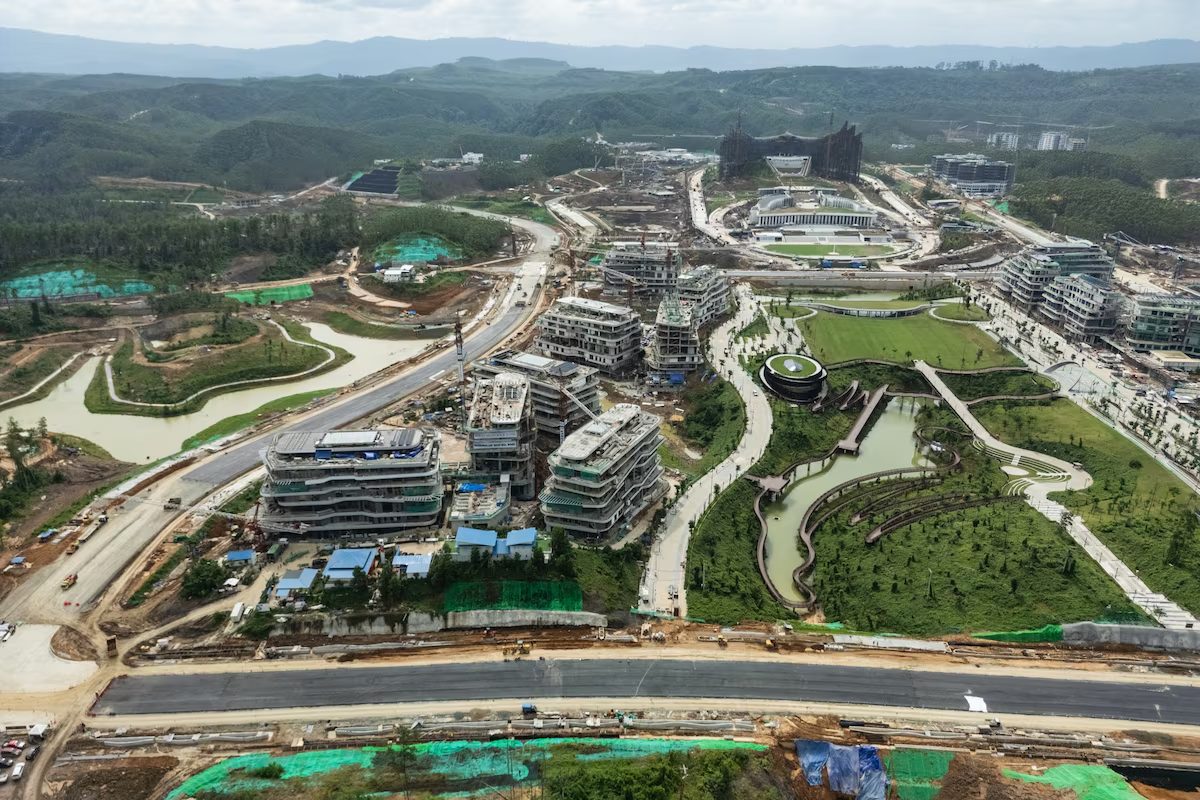Indonesia is set to move its capital from Jakarta to a new city called Nusantara, situated on the island of Borneo. This relocation, years in the making, will culminate this weekend when President Joko Widodo, popularly known as Jokowi, hosts Independence Day celebrations in the new capital on Saturday. The decision to relocate stems from a multitude of issues plaguing Jakarta, ranging from overpopulation to environmental concerns.
Jakarta, home to over 10.5 million residents and approximately 30 million in the greater metropolitan area, has long struggled with issues like traffic congestion, pollution, and, most critically, sinking land. Experts warn that parts of Jakarta could be uninhabitable or frequently flooded by 2030 due to the city’s rapid subsidence. Built on swampy ground and heavily reliant on groundwater, Jakarta has been dubbed the world’s fastest-sinking megacity.
In 2022, Indonesia passed legislation to fund and govern the relocation, emphasizing the strain Jakarta places on the island of Java. Nusantara, located in the jungle of Borneo, offers a stark contrast to the bustling, sinking capital. Planners and government officials view Nusantara as a key part of Indonesia’s long-term strategy to develop the nation and propel it towards achieving developed-country status by 2045.
The new capital is designed with ambitious goals in mind. Over the next two decades, Nusantara is expected to evolve into a sustainable city featuring modern commercial infrastructure, government offices, housing, and efficient public transit. The city’s design is centered around the concept of a “sponge city,” which aims to absorb rainfall into the ground, preventing floods. This contrasts sharply with Jakarta’s chronic flooding issues.
Nusantara’s development is also closely tied to Indonesia’s broader vision of becoming a developed nation by 2045, the centennial of its independence from Dutch colonial rule. The 2045 Golden Indonesia Vision outlines a roadmap for the country’s economic transformation, with Nusantara playing a critical role.
However, not everyone is enthusiastic about the move. Environmental advocates have raised concerns about the ecological impact of clearing jungle areas to make way for the new capital. Despite its promise of sustainability, the project has faced criticism for potentially causing irreversible harm to Borneo’s rich biodiversity.
The city’s planners have set bold targets. By 2035, they aim to reduce poverty to zero within Nusantara, a significant challenge given that nearly 10% of Indonesians were living in poverty as recently as 2022. Additionally, by 2045, Nusantara aims to achieve net-zero emissions, contributing to Indonesia’s broader environmental goals.
Nusantara joins a select group of newly founded capital cities in modern history. One prominent example is Brasília, Brazil’s capital since 1960, known for its modernist architecture and unique urban design. Egypt is also in the process of constructing a new capital to ease the burden on Cairo, addressing similar issues like congestion and pollution.
Also Read:
- Recovered $124 Million Dresden Jewels Return to Their Museum Display
- As Kamala Harris Steps Up, Biden Focuses on Legacy and Offers Strategic Support in 2024 Race
As Indonesia embarks on this bold experiment, the world will be watching closely to see whether Nusantara can fulfill its promise of being a model for sustainable urban development and a driving force in Indonesia’s path to becoming a developed nation.




